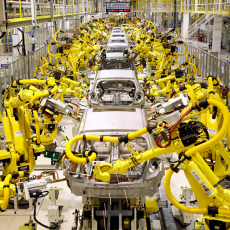A recent report published by the Brookings Institute entitled ‘The Future of Work in the Developing World’ highlights the rapid change that labour markets in developing countries are undergoing as a result of technological innovation and globalisation. Developed by the Brookings Blum Roundtable, the report analyses the different factors driving change in global labour markets and assesses whether these forces are playing a unique role in developing economies. Other issues examined in the report include assessing the jobs of the future, changes in employment terms and contracts and an in-depth look at the job skills likely to be in demand in the future as well as how workers in the developing world will acquire them.
 Nearly 50 prominent policymakers, stakeholders, academic leaders and development practitioners contributed to the report. The report identified three key impacts of globalisation and digital innovation on the labour market in developing countries.
Nearly 50 prominent policymakers, stakeholders, academic leaders and development practitioners contributed to the report. The report identified three key impacts of globalisation and digital innovation on the labour market in developing countries.
These include disruption, when jobs are relocated to other areas as well as wholesale changes in the nature of job function. Disruption is a well-known factor in the labour markets of developed countries but the Brookings Institution report noted that the economy is far more fragile in developing countries and thus is more vulnerable to disruptive events.

These include disruption when jobs are relocated to other areas as well as wholesale changes to the nature of job functions. Disruption is a well-known factor in the labour markets of developed countries but the Brookings Institution report noted that economies are far more fragile in developing countries and thus more severely impacted by disruptive events.
The second key factor was identified as a diminishing role of labour, especially as technological innovation has led to workers being replaced by automated machinery and capital goods becoming more affordable to produce. The last key factor affecting the labour market in developing countries was identified as the decentralisation of economic activity away from organised corporate and for-profit entities to individual workers who function as ‘micro-entrepreneurs’ in what has been labelled the ‘gig economy’.

